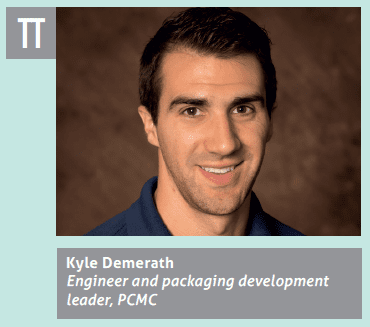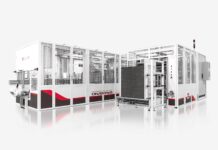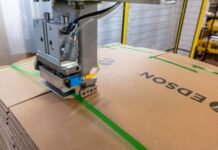
The escalating demands of today’s converting market continue to increase pressure on converters. Factors like trade wars, pulp prices, and global markets create external threats that converters can do little about. Other demands like buying habits of end-users and major store brands may seem external as well, but how converters strategically respond to those needs and future proof their business ultimately determines their long-term success.
The continued growth of private label tissue products over the last decade require converters to demonstrate flexibility in their packaging systems. The number of lines converters can dedicate to single formats and product SKUs has dropped as they need to prioritize private label needs. This requirement, as is always the case for small contract converters, is now just as important for large brand label producers as well.
Fueling this growth of private label products are warehouse stores, which continue to expand their footprints and show healthy financials. Large bundles of towel and tissue dominate their store shelves and sales numbers, and the message to converters is clear on what formats are needed.
On the towel side, 12- and 15-roll bundles lead the way in sales volume. Because retailers want every roll inside the bundle wrapped, the single-roll towel package has become the dominant format run on wrappers in the United States. As of 2018, PCMC’s analysis of the market data shows that single-roll towel accounted for around 70% of the packages made on wrappers for the consumer market space. And even when looking at the
issue and towel market as a whole, single-roll towel still amounts to around one-fourth of the wrapper market.
The challenge for converters then becomes how to package this high-speed format effectively. Rewinders can now produce these towel products at rates around 300-400 rolls per minute with ease, stressing the capacity of many two-leg packaging solutions and leaving no margin for downtime. This, coupled with the need for a flexible machine that can make multi-layer tissue and towel packs, leaves converters with bottle necks as they try to produce the most common towel format today.
Addressing this challenge creates a unique opportunity for PCMC with its XF800 wrapper.
Founded in continuous flow technology, the XF800 is not only capable of consistently running single-roll towel at speeds of 200 ppm, but also running packs up to 5 wide and 3 high on the same machine. While many other machines in the market can match the size range of the XF, those same machines cannot match the reliability of high-speed production
on single-roll towel — and the converting market is taking notice.
As more converters require high-speed towel production, they realize other flexible wrapper assets cannot keep up with the daily rates they need to match what their rewinders can produce. The XF800 addresses those needs without creating more complicated pack loops that rob efficiency and take up space.
In addition to its proven reliability, the XF800 offers flexibility and an operator-friendly machine built to generate more revenue for converters. Less maintenance and better access for personnel are clear advantages. A customer favorite, the changeover wizard, guides operators through every step of a changeover using easy-to-interpret pictures and steps to ensure accuracy every time. Combined with reliable adjustment motors with absolute feedback encoders built in eliminates the need to spend hours getting back to running speeds after changeovers. And on lines that need flexibility, the 20-30 minute changeovers to go from production speed to production speed delivered on the XF means more revenue for converters.
As converters with the XF800 discovered, the single-roll towel speed crucial to the industry, class-leading reliability, and operator-focused features of the machine strengthens their ability to deliver the finished products the market demands. The strategic decision these converters made to utilize the XF800 enables them to generate more revenue in today’s market while providing the flexibility to address tomorrow’s changes.
This article was written by Kyle Demerath, engineer and packaging development leader, PCMC, for TWM.






























